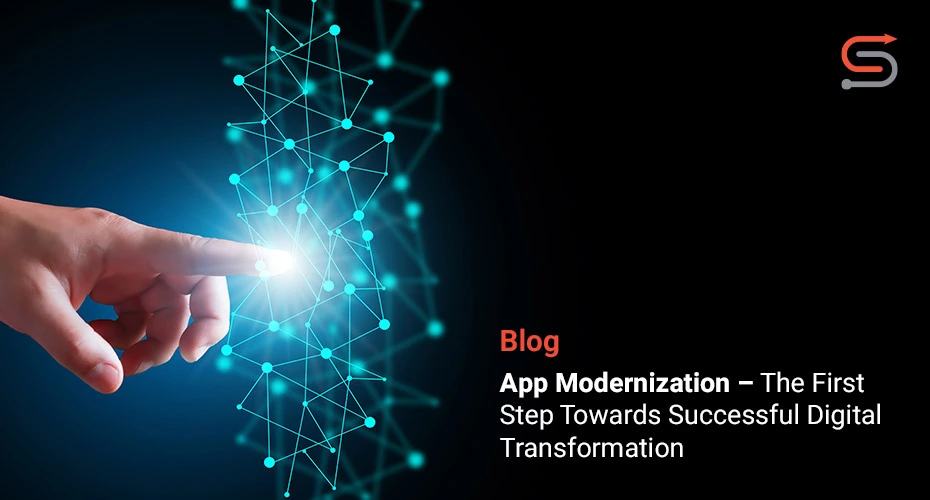Over the last couple of years, organizations of all types and sizes have been driving efforts to digitally transform themselves and stay relevant and successful. But the recent crisis has come as a wake-up call for all, forcing even the smallest of organizations to accelerate their transformation efforts to optimize business processes, reshape existing business models, and respond to new requirements with agility. But despite the need and the pressure to embark on the digital transformation journey, many end up with poor results because of the presence of siloed, legacy systems.

Why are Legacy Systems Bad for Transformation?
It is widely believed that embracing new technology can aid in accelerating digital transformation efforts. But just implementing a handful of new tools can never really deliver the results that modern organizations today expect; they must also make sure that these new tools plug and play seamlessly with the existing IT landscape. Most organizations today, no matter how modern in their outlook, continue to rely on traditional and proprietary apps and systems that risk the success rate of transformation.
Legacy apps, although a fundamental part of organizations, bring with them several challenges which when not addressed in time, can severely impact digital transformation efforts.
- Most legacy systems are not prepared for change; since they were built to deal with long periods of static, invariable needs, they cannot keep up with the pace of change that most organizations today are undergoing
- Legacy systems have extremely poor security features; in an age where even a small loophole can bring an entire business down, such systems can have a far-reaching, catastrophic impact
- Most legacy systems offer little or no integration and customization opportunities that make it even more difficult for them to operate with modern systems
- They lack necessary real-time analytics capabilities which can impact the quality and timeliness of business decision-making
- Due to their inherent complex nature, legacy systems also often carry high support and maintenance costs. Highly skilled and niche resources are needed to manage these systems on a day-to-day basis
- And since they are built using proprietary languages and technologies, they often have an extremely shoddy user experience which tends to impact productivity and efficiency
App Modernization is the Foundation of Successful Transformation
Adapting to changing business scenarios requires organizations to be digitally-adept. Given the many risks legacy systems pose, enterprises need to modernize these systems to enable rapid innovation and drive transformation. Here’s how app modernization builds the foundation of successful transformation:
- It improves functionality and performance: Modernizing legacy apps helps in improving their functionality and performance. Through refactoring, recoding, or just restructuring, organizations can enhance the capabilities of the apps they have and make them more relevant to operate in today’s times.
- It makes legacy apps cloud-ready: App modernization can also make legacy apps cloud-ready, which means they are in a better position to keep up with the demands of a modern world. Right from anytime, anywhere access to consistent and updated data, and improved security, scalability, and availability – modernization allows apps to have what it needs to survive and thrive in today’s world.
- It enhances integration capabilities: Application modernization also helps introduce interoperability between mission-critical legacy systems and modern SaaS-based services and applications. Such interoperability means systems are in a better position to communicate with each other and can share data and resources as and when necessary.
- It brings down cost of maintenance and support: Application modernization also allows IT resources to spend less time and money in maintaining legacy apps and more time in building newer and more effective products and experiences. Through modernization, organizations can eliminate the costs of managing rigid on-premises hardware, optimize operational expenditure, and even bring down the costs of planned and unplanned downtime.
- It enhances user experience: Updating costly and outdated on-premises legacy systems and making them modern also helps improve user experience. Through the inclusion of innovative technology like mobile, cloud, and IoT, organizations can deliver flexible user-friendly applications and enhance productivity and efficiency.
- It enables real-time insights: Through constant updating of inherent data, modernization enables organizations monitor and track app performance while unearthing real-time insights. These insights can be evaluated via intuitive reports and dashboards and used to base important business decisions.
- It enhances business agility: App modernization enables organizations introduce new features and changes quickly, allowing them to respond to changes in business needs with agility. They can also fix issues more easily and efficiently and scale at a rapid pace.
- It makes customizations easy: Modernizing legacy applications makes them easier to tailor and customize. By getting rid of proprietary code and infrastructure, organizations can more easily rebuild or refactor applications and make necessary changes to their functionality to meet changing business needs.
- It improves security and compliance: App modernization allows enterprises to keep up with regulatory changes and compliance mandates. Through better and deeper understanding of security risks and loopholes, organizations can quickly identify vulnerabilities, automate risk reporting, and curtail the probability and impact of data breaches and leakage.
As digital transformation becomes a business prerogative, enterprises across the world are realizing that their legacy infrastructure is limiting them from driving real results. Application modernization can act as building blocks for successful transformation, allowing organizations to improve functionality, integration, customization, real-time insights, and security while bringing down costs of maintenance. When done right, it can help in improving business agility and responsiveness, lowering TCO, reducing unwanted technical debt, and making the business capable of operating and succeeding in uncertain times.


